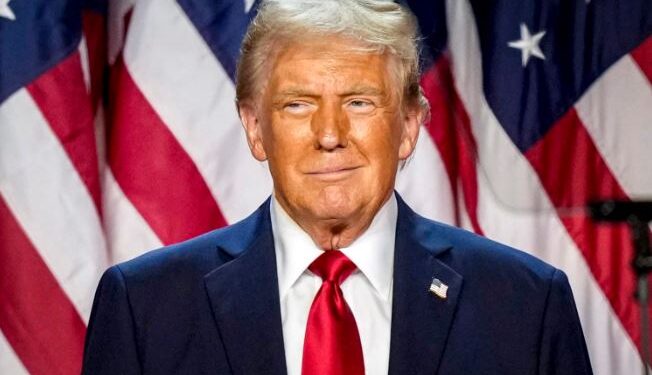U.S. Appeals Court Rejects Trump’s Bid To Revoke Thousands Of Migrants’ Status

A request by President Donald Trump’s administration to allow it to revoke the temporary legal status of hundreds of thousands of Cubans, Haitians, Nicaraguans, and Venezuelans living in the United States has been rejected.
The request was rejected by a federal appeals court on Monday.
The Boston-based 1st U.S. Circuit Court of Appeals declined to put on hold a judge’s order halting the Department of Homeland Security’s move to cut short a two-year “parole” granted to the migrants under Mr Trump’s Democratic predecessor, Joe Biden.
The administration’s action marked an expansion of the Republican president’s hardline crackdown on immigration and push to ramp up deportations, including of noncitizens previously granted a legal right to live and work in the United States.
The administration argued that Homeland Security Secretary Kristi Noem had discretion to categorically end the migrants’ status and that the judge’s order was forcing the U.S. government to “retain hundreds of thousands of aliens in the country against its will.”
However, a three-judge panel comprised entirely of appointees of Democratic presidents said Ms Noem “has not at this point made a ‘strong showing’ that her categorical termination of plaintiffs’ parole is likely to be sustained on appeal.”
Karen Tumlin, a lawyer whose immigrant rights group Justice Action Centre pursued the case, welcomed the court’s decision. She called the administration’s actions “reckless and illegal.”
The administration could now ask the U.S. Supreme Court to intervene.
“The Trump administration is committed to restoring the rule of law to our immigration system,” Homeland Security Department spokesperson Tricia McLaughlin said in a statement. “No lawsuit, not this one or any other, is going to stop us from doing that.”
A lawsuit by immigrant rights advocates representing migrants challenged the agency’s decision to pause various Biden-era programs that have allowed Ukrainian, Afghan, Cuban, Haitian, Nicaraguan, and Venezuelan migrants to enter the country.
While the case was pending, the Homeland Security Department on March 25 announced in a Federal Register notice that it had decided to terminate the two-year parole granted to about 400,000 Cubans, Haitians, Nicaraguans, and Venezuelan migrants.
U.S. District Judge Indira Talwani, an appointee of Democratic President Barack Obama, on April 25 halted the agency’s action, which she said revoked previously granted parole and work authorisations for migrants on a categorical basis and without a necessary case-by-case review.
She said the department’s sole basis for declining to allow the migrants’ parole status to expire naturally was based on a legal error, as it wrongly concluded doing so would foreclose the department’s ability to expedite their deportations legally.
We have recently deactivated our website’s comment provider in favour of other channels of distribution and commentary. We encourage you to join the conversation on our stories via our Facebook, Twitter and other social media pages.





